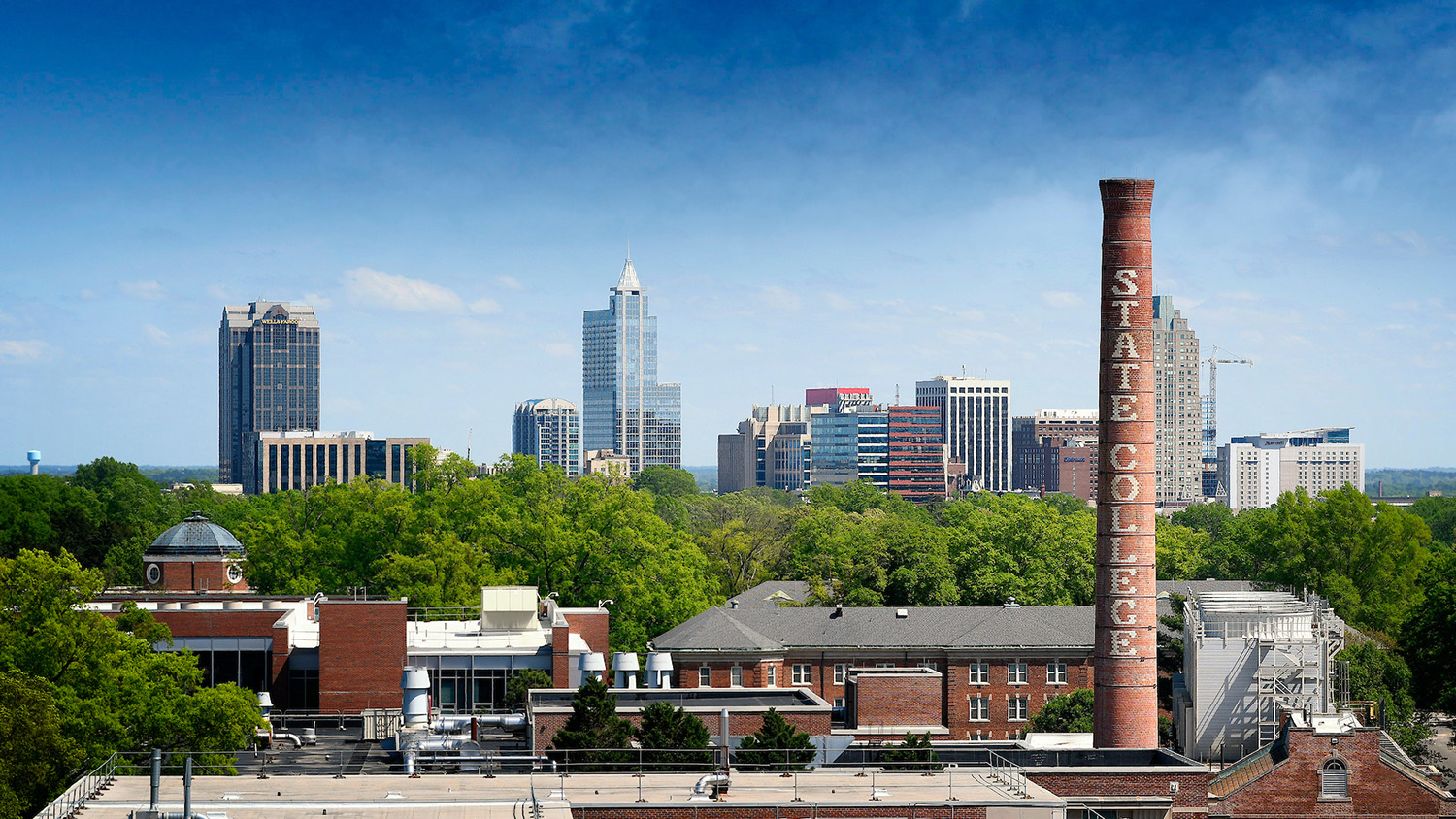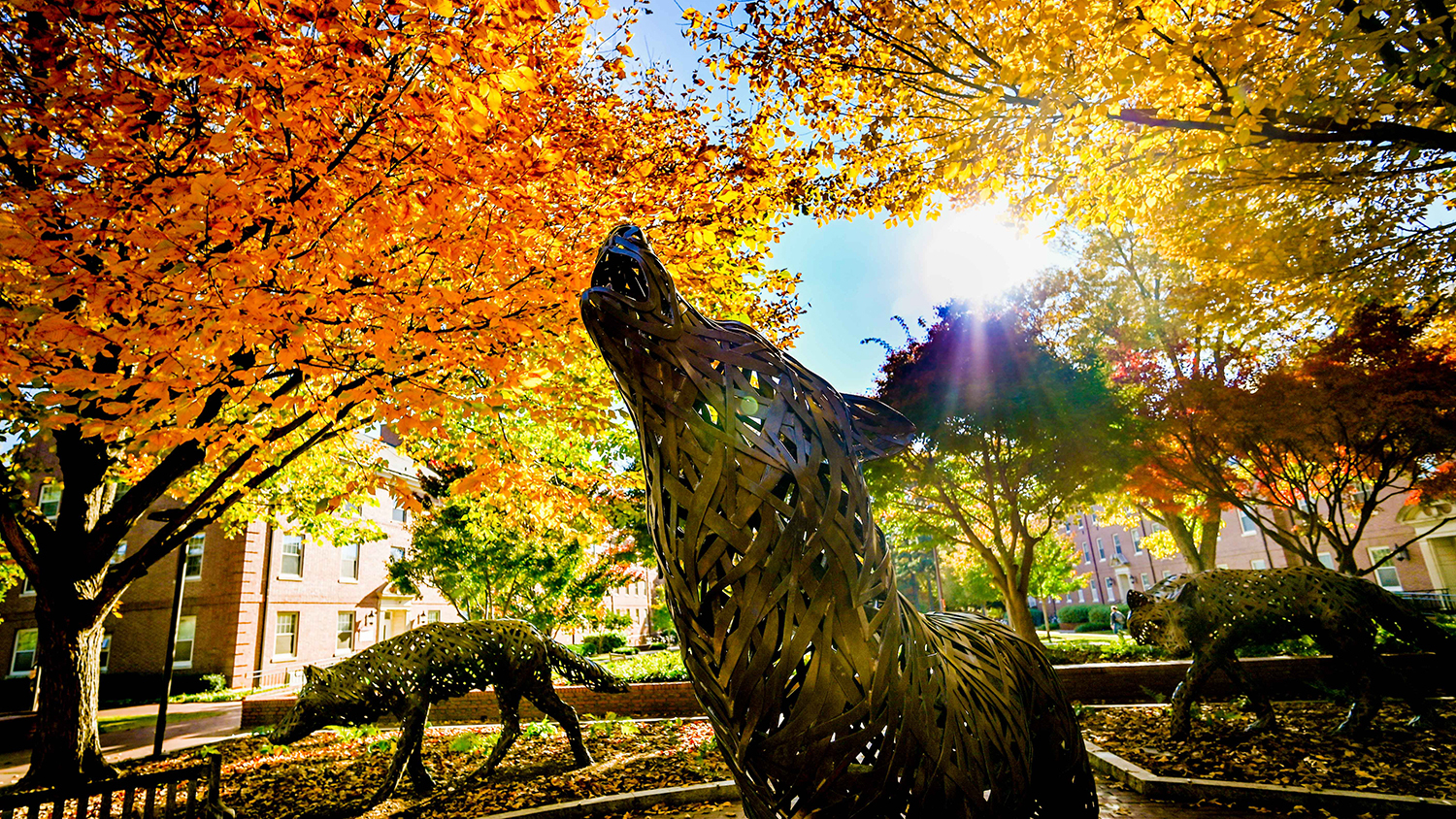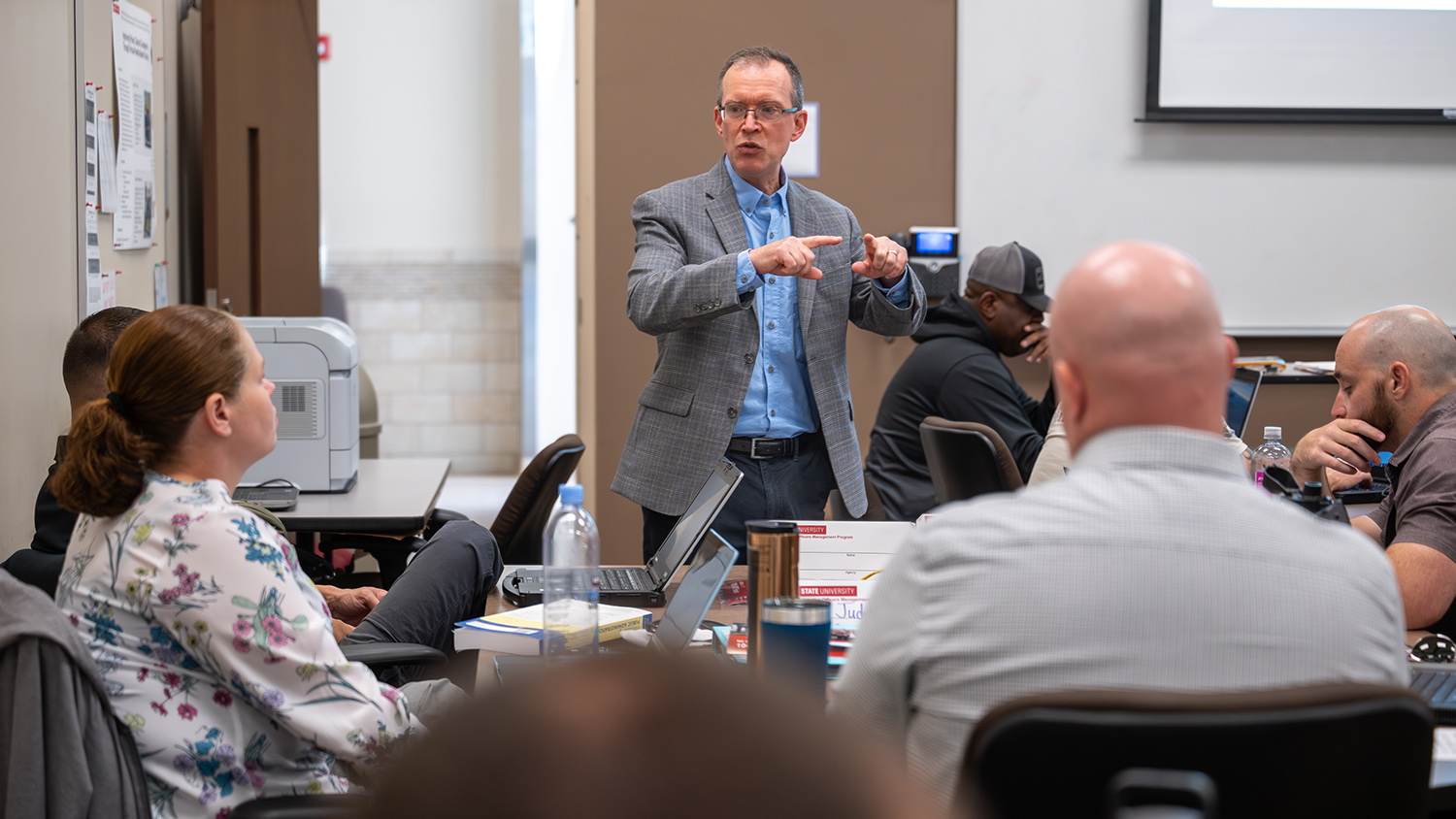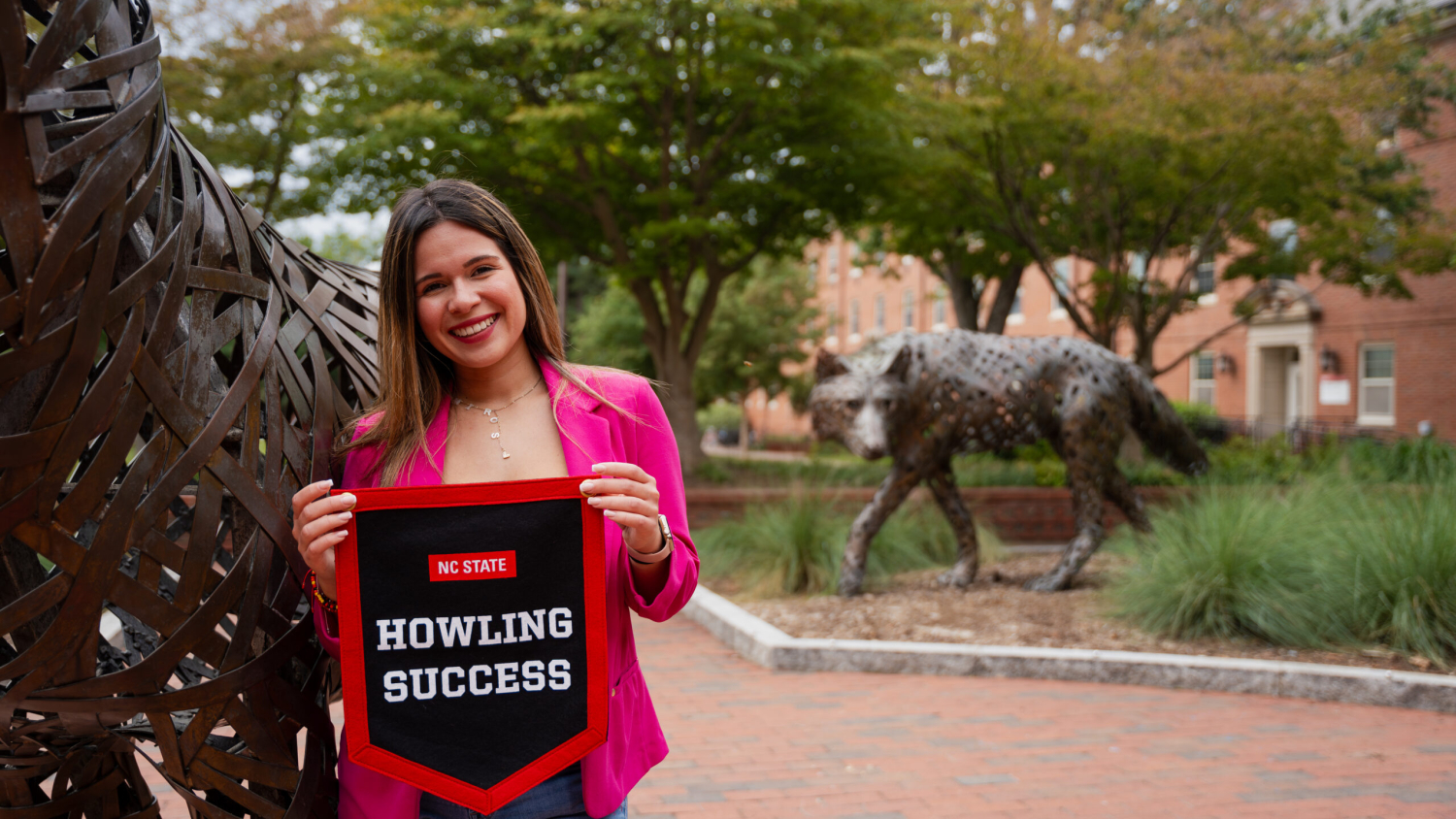Students Jumpstart Careers with Spring Internships

The internship semester is an important part of the political science program at NC State University. By working in a temporary position that provides intentional learning objectives, students apply classroom knowledge to real world situations, explore possible career paths, solidify interest in a field of study, and begin to develop a professional network and workplace skills.
“For students interested in pursuing careers in politics and policy making, getting the first job is always the hardest,” said Associate Professor Michael Struett, Chair of the Department of Political Science. “Internship opportunities can give our students the real world experience to see how they can put their classroom knowledge to work to help organizations achieve their missions, and it also helps them build the professional network they will need to secure their first professional position after graduation.”
The Department of Political Science encourages students to complete at least one internship before graduating. “With many federal, state and local government offices in our area, and lots of lobbying, non-profit and issue advocacy groups as well, there are numerous opportunities available,” Struett added. “Students who want to receive academic credit for the experience will also enroll in PS 391, our internship course.”
Chase Gaines, Savannah Hill and Robert Morgan did just that during the spring 2021 semester and completed internships that demonstrate the breadth of pre-professional experiences available to students in NC State’s political science program.

Chase Gaines (’22)
Degree: B.S. in political science and agricultural business with minors in economics and poultry science
Internship: The North Carolina Republican Party, Raleigh
What did you do in this internship?
I worked with stakeholders from all over North Carolina—from public servants to donors—who were interested in getting Republicans elected to political office. I managed the building of coalitions for party operations such as NC Republican Hispanics, NC Black Conservative Voices and NC Republican Sportsmen. I recruited over 500 attorneys from across the state to assist the NCGOP with 2020 candidates on Election Day operations and get out to vote initiatives.
What is the most valuable thing you learned during the course of this internship?
I learned I am able to quickly adapt to different situations and that I work effectively with large teams on projects that require attention to detail.
How has this experience affected what you will do next?
I have always had a passion for politics and public service. This internship allowed me to tap into potential I was not aware I had. I will be starting as the political director for Ted Budd’s campaign for the U.S. Senate in the coming days. I do not believe I would have been prepared for this new job without my time at the North Carolina Republican Party.
What advice do you have for students considering a similar internship experience?
If you decide to do an internship in politics, be prepared to give a lot of time and effort. At the end of the day your values must align with the candidate or organization you’re working with or you won’t be able to dedicate yourself to their mission, whether it’s political or policy related.
 Savannah Hill (‘21)
Savannah Hill (‘21)
Degree: B.A. in political science with minors in criminology and Spanish
Internship: The Noble Law, Raleigh, North Carolina
What did you do in this internship?
My primary responsibility was drafting agreements that would be sent to our clients as their formal recognition of utilizing the firm’s legal services. There were multiple types of agreements (non-litigation, joint, flat fee, litigation, etc.) and each one required different legal jargon that had to be perfect before sending it out for signature. Each agreement is extremely specific and precise. It is important to be accurate; not one comma can be out of place or the document can take on an entirely different meaning. Overall, it was important to master each type to ensure that legal representation started off on the right foot.
What is the most valuable thing you learned during the course of your internship?
The most valuable thing I learned at the Noble Law is that every single person in the workplace has value. This firm embraced my skills and made me feel that my role was an important part of the team—that as one of the first contacts with potential new clients, I was contributing to the overall success of the firm.
How has this experience affected what you will do next?
This internship reassured me that I am on the right career path. I have always wanted to be an attorney and my time at The Noble Law validated that aspiration. Additionally, it sparked my interest in employment law which I had no experience with prior to this position. The internship also expanded my network and I now have an opportunity to remain at the firm as a summer associate while I am enrolled in law school.
What advice do you have for students considering a similar internship experience?
In keeping with the NC state motto to think and do, my advice is to put yourself out there and do it! Networking is one of the most valuable tools one can have and taking an internship will provide you with a network that can drastically open your future options. There is no such thing as a network too big, so start early and you will see the benefits in the long run.
 Robert Morgan (‘21)
Robert Morgan (‘21)
Degree: B.A. in political science with a minor in history
Internship: Research and Planning Unit, Office of the Chief, Raleigh Police Department
What did you do in this internship?
I conducted research on policing policies and practices with the intention of developing “best practices” that enhance the safety of the whole community. I also helped create the outreach strategy for the Addressing Crises through Outreach, Referrals, Networking, and Service (ACORNS) program, which focuses on connecting individuals in crisis with community partners who can help them access the resources they need.
What is the most valuable thing you learned during the course of this internship?
I learned that asking for help or additional clarification is nothing to be embarrassed about. There were a few times when I wasn’t sure I understood the assignments I was given, but by asking questions, I found my supervisors were always happy to help. If I had not done this, I would have just been hurting myself and my work.
How has this experience affected what you will do next?
My internship with the research and planning unit was a great introduction to the professional world. It prepared me for my current internship at a law firm because of the skills I developed researching and synthesizing information. In my current position as a government relations intern, I track pieces of legislation that are important to clients.
What advice do you have for students considering a similar internship experience?
Don’t be afraid to ask for clarification and guidance if you need it. Internships are learning experiences.
- Categories:


